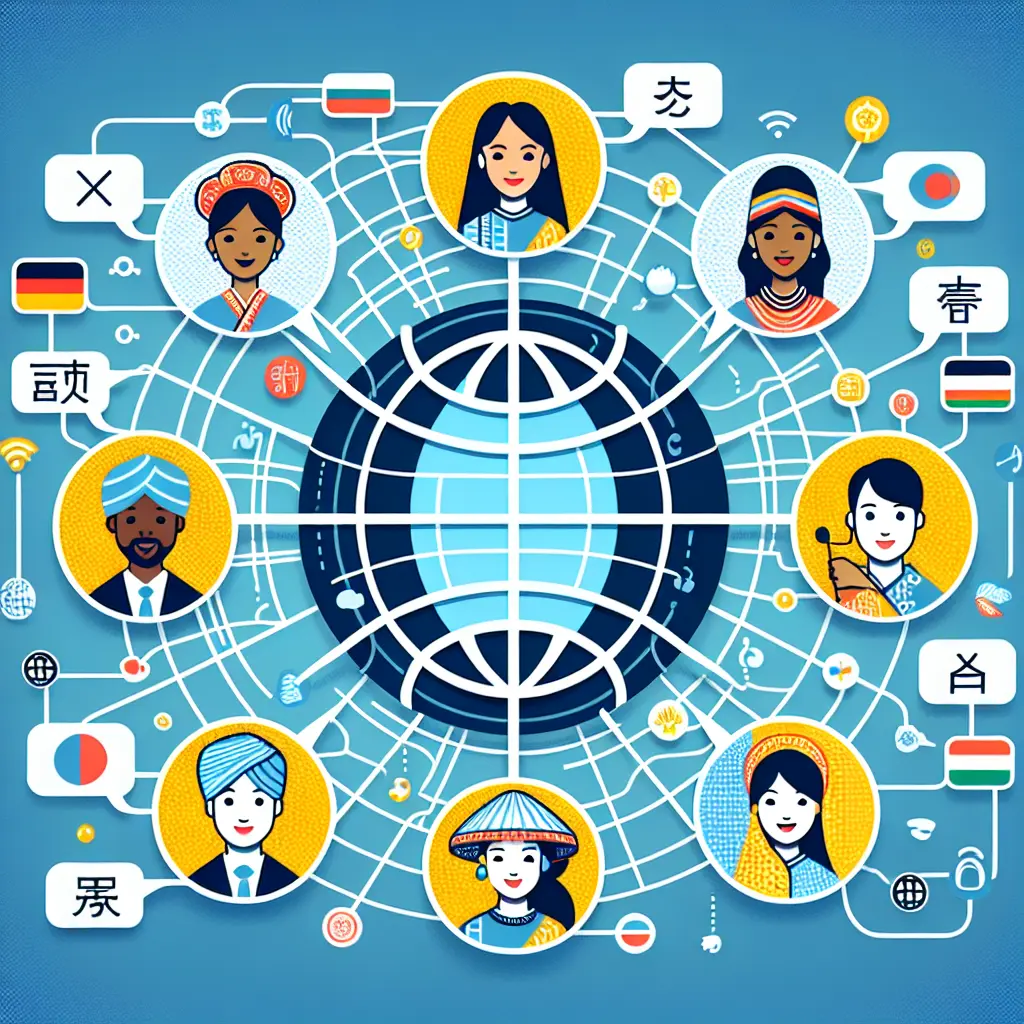
Exploring the Role of Omegle in Cross-Cultural Exchanges
In today's interconnected world, platforms like Omegle play a pivotal role in facilitating cross-cultural exchanges. Online communication has become a cornerstone of cultural diversity and understanding, ushering in an era where global interactions are just a click away. This digital connectivity allows people from various backgrounds to engage in language exchange and forge virtual connections that transcend borders. As a cultural exchange platform, Omegle offers a unique opportunity for users to engage in intercultural dialogue, promoting social networking and nurturing international friendships that contribute to a vibrant global community.
The Essence of Omegle
The essence of Omegle lies in its ability to bring together individuals from disparate cultures, fostering cultural awareness and encouraging cultural learning through spontaneous online chats. This online chat platform enables worldwide communication, creating a space where internet culture thrives. Participants can explore the nuances of different societies, gaining insights into diverse lifestyles, traditions, and perspectives, thereby enriching their understanding of the world.
Bridging Cultural Gaps
Omegle's role in digital communication is instrumental in bridging cultural gaps and enhancing global connectivity. It provides an avenue for users to immerse themselves in intercultural dialogue, promoting empathy and appreciation for cultural differences. This virtual interaction not only broadens one's horizons but also cultivates an environment where cultural understanding flourishes.
Challenges and Considerations
The Dual Nature of Online Communication Platforms
While Omegle offers significant benefits as a cultural exchange platform, it also presents challenges. The platform's openness makes it vulnerable to misuse. A stark reminder of this is the case of James Patrick Burns, convicted for ‘sextortion’ involving over 100 children on platforms including Omegle (source: Department of Justice). This case underscores the critical importance of ensuring safe online environments while promoting global interactions.
Navigating the Challenges of Cultural Diversity Online
The internet culture thriving on platforms like Omegle is complex and multifaceted. While it allows for worldwide communication and meaningful cross-border interactions, it also necessitates robust mechanisms to protect vulnerable users. Reports indicate that 20% of preteens believe they are having online sexual encounters with adults (source: Cyberbullying Research Center), highlighting the urgent need for enhanced protective measures.
Strategies for Enhancing Safe Cross-Cultural Exchanges
To promote safer cross-cultural exchanges on Omegle and similar platforms, several strategies can be implemented:
- Enhanced Moderation: Implement advanced moderation tools and algorithms to identify and prevent inappropriate content.
- User Education: Provide resources and guidance for users, particularly younger ones, on how to engage safely in online chats.
- Community Guidelines: Establish clear community standards that promote respectful and constructive intercultural dialogue.
- Partnerships with Law Enforcement: Collaborate with authorities to quickly address any instances of exploitation or abuse.
The Positive Potential of Cross-Cultural Exchanges
Despite the challenges, the potential for positive cross-cultural exchanges on platforms like Omegle remains significant. Such interactions can promote empathy and cultural understanding, crucial components of a more inclusive global society. By engaging in intercultural dialogue, users can expand their horizons, developing a deeper appreciation for cultural diversity.
Furthermore, these virtual connections can lead to tangible outcomes in terms of language proficiency and cultural learning. Engaging with native speakers through language exchange can significantly enhance language skills while providing insights into cultural nuances.
The Future of Cultural Exchange Platforms
As we look towards the future, the role of digital communication platforms in fostering cross-cultural exchanges will likely continue to grow. With advancements in technology and increased awareness of safety issues, there is an opportunity to create more secure environments that prioritize both user safety and meaningful global interactions.
Omegle, as a microcosm of larger internet culture dynamics, illustrates the delicate balance between facilitating cultural exchange and ensuring user safety. By addressing current challenges and leveraging the strengths of such platforms, we can harness their potential to contribute positively to our interconnected world.
Conclusion
In conclusion, while Omegle offers valuable opportunities for cross-cultural exchanges through online communication, it also presents challenges that must be addressed proactively. By implementing robust safety measures and fostering an environment conducive to intercultural dialogue, platforms like Omegle can play an instrumental role in promoting cultural diversity and understanding. This balance is essential for nurturing a global community where international friendships thrive and cultural awareness flourishes.
Through continued efforts to enhance these platforms' capabilities and safety measures, we can better appreciate their role in shaping a more inclusive and connected world. As users engage in these digital spaces, they become active participants in a broader narrative of cultural exchange that transcends borders and fosters a deeper understanding among diverse communities.
I invite you, dear reader, to reflect on your own experiences with online platforms. How have they shaped your understanding of different cultures? Your insights and stories could spark meaningful conversations and further enrich our collective journey toward a more connected world. Please feel free to share your thoughts in the comments section below.
Together, by actively participating in these digital spaces, we can nurture an inclusive global community where cultural diversity is celebrated and understanding is deepened. Let's continue to explore these opportunities responsibly and thoughtfully.
Author: Lisa Marlowe